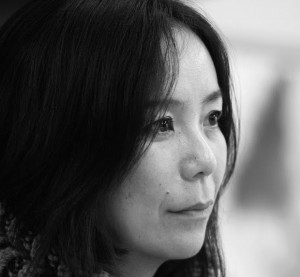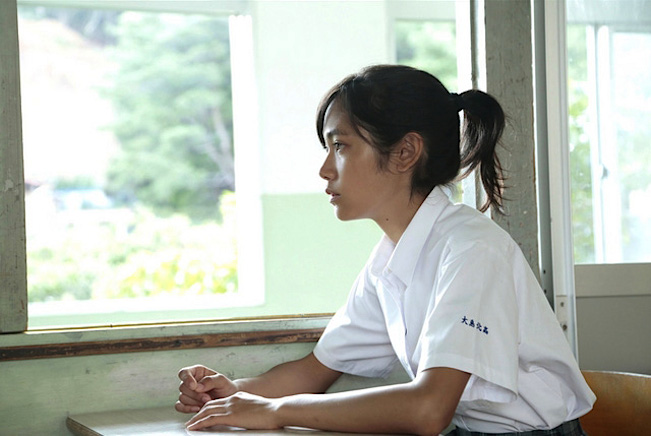By Jake Howell jake.howell@utoronto.ca
Countdown To Cannes: Naomi Kawase
The seventh in a series of snapshots outlining the nineteen directors in the 67th Palme d’Or Competition.
Background: Japanese; born Nara, Japan 1969.
 Known for / style: Shara (2003), The Mourning Forest (2007), Hanezu (2011); a filmography that includes documentaries (many of them short); tender, delicate narratives; writing novels in addition to scripts; reflections on being raised by her grandparents; films that are inspired by personal stories in her life; working with non-professional actors; images that reflect a reverence for the natural world and the elements.
Known for / style: Shara (2003), The Mourning Forest (2007), Hanezu (2011); a filmography that includes documentaries (many of them short); tender, delicate narratives; writing novels in addition to scripts; reflections on being raised by her grandparents; films that are inspired by personal stories in her life; working with non-professional actors; images that reflect a reverence for the natural world and the elements.
Notable accolades: When Kawase won the Camera d’Or for her first narrative feature (Suzaku, 1997) it was the beginning of a major festival career. Since then, she’s won the Grand Prix at Cannes (The Mourning Forest), two FIPRESCI prizes (Hotaru, 2000 and Suzaku), and was the recipient of a “Filmmakers of the Present” award at Locarno.
Previous Cannes appearances: Kawase has had three films in Competition: Sharasojyu (2003), The Mourning Forest (2007), and Hanezu (2011). Suzaku (1997) played in a parallel section, where it won the Camera d’Or.
Film she’s bringing to Cannes: Still the Water (Japanese: Futatsume no mado), a coming-of-age romance. From the distributor notes: “On the subtropical Japanese island of Amami, traditions about nature remain eternal. During the full-moon night of traditional dances in August, 16-year-old Kaito discovers a dead body floating in the sea. His girlfriend Kyoko will attempt to help him understand this mysterious discovery. Together, Kaito and Kyoko will learn to become adults by experiencing the interwoven cycles of life, death and love.” Continuing her career theme of elemental veneration, Still the Water’s title liquid will be a major motif.
Could it win the Palme? Kawase’s sensitive style is mature, emotionally stirring, and pitch-perfect for the Palme. Is it reductive to think Jane Campion, the only woman to have won the Palme d’Or, would want to induct someone new to her club? Probably, but the thought remains nonetheless. The jury’s favorite film will be the winning film—full stop. But the images released from Still the Water hint at something beautiful, and Kawase has come very close to winning before. Make no mistake: she is a favorite to win.
Why you should care: “We don’t have many very original films in Japan,” Kawase said in an 2013 interview commissioned by Cannes. “Perhaps this is due to the fact that it is a country with a very marked and very specific culture.” If you feel similarly, Still the Water is a no-brainer. Otherwise, it will be neat to see Kawase compete against Jean-Luc Godard, a hero of hers. “Godard [and the nouvelle vague]’s way of filming life really influenced my style, my way of depicting reality,” Kawase said in the same interview.
Follow Jake Howell on Twitter: @Jake_Howell
Previous Entries:
Tommy Lee Jones
Atom Egoyan
Bennett Miller
Xavier Dolan
David Cronenberg
Nuri Bilge Ceylan

















